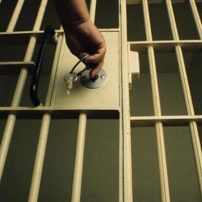
The passive and ineffective attitude of a lawyer appointed to a case of involuntary incarceration of a patient in a psychiatric hospital does not fulfill the procedural guarantees under Article 5 of the ECHR
JUDGMENT
Čutura v. Croatia 10.01.2019 (no.55942/15)
SUMMARY
The case concerned a court order to keep the applicant in a psychiatric hospital where he had been
placed after it had been found in the criminal proceedings that he had uttered threats in a state of
mental derangement.
The Court found in particular that the applicant’s court-appointed lawyer had been passive and
ineffective and that the domestic court had failed to compensate for the lack of effective legal
representation. The procedural requirements necessary for keeping the applicant in hospital had
therefore not been met and there had been a violation of the Convention.
PROVISIONS
Article 5
Article 6
PRINCIPAL FACTS
The applicant, Dragan Čutura, is a Croatian national who was born in 1980 and lives in Vrbovec
(Croatia).
In January 2014 the criminal court found that Mr Čutura had made verbal threats to his neighbours
in a state of mental derangement. Seen as a threat to others and already being held in Zagreb Prison
hospital, a court ordered that he be committed to a psychiatric institution. His appeals were
unsuccessful.
In April 2014 Zagreb Country Court ordered that Mr Čutura be committed to Vrapče Psychiatric
Hospital for six months, effective from May 2014.
In July of the same year the hospital asked for his confinement to be extended. The judge handling
the request visited Mr Čutura in the hospital, accompanied by the applicant’s court-appointed legal
aid lawyer. The Country Court held a hearing in August 2014, with representatives from the hospital,
the State Attorney’s Office and the legal aid lawyer. The court ordered that Mr Čutura’s involuntary
confinement be extended by one year.
Mr Čutura’s father, acting on his son’s behalf, appealed. He submitted that the family had had no
idea that Mr Čutura could be kept in the hospital, had not been not aware of the court proceedings,
and that the lawyer had been ineffective.
The appeal was rejected and the father lodged a constitutional complaint, alleging that the lawyer
had acted as an arm of the institutions rather than as his son’s defender. The Constitutional Court
dismissed the complaint.
Mr Čutura was given a conditional release in August 2015
THE DECISION OF THE COURT
The Court’s examination of the case mainly concerned the proceedings which had led to the
applicant being kept in hospital under a court order for a further year, which was also the subject of
the Constitutional Court’s examination in June 2015. It applied the general principles for involuntary
confinement in a psychiatric hospital set out in the case of M.S. v. Croatia (no. 2).
The Court noted that although Mr Čutura had used a particular lawyer of his own choice in the initial
criminal trial, the domestic courts had appointed a new legal aid lawyer in the proceedings on his
involuntary hospitalisation. The second lawyer was, for reasons unknown, soon replaced with a
different one.
Furthermore, that third lawyer had acted as a passive observer in the proceedings on extending
Mr Čutura’s involuntary confinement: the lawyer had not addressed the applicant or the judge
during the meeting at the hospital with the judge; had not attempted to contact the applicant or his
family; and had not made any submissions on Mr Čutura’s behalf during the later hearing.
Although well aware of the lawyer’s passive attitude, the courts had failed to ensure that the
applicant was represented in an effective manner. That was despite the fact that they were under an
enhanced duty of supervision when it came to people with disabilities.
There was also no evidence that the judge had informed the applicant of his rights or given any
consideration to his taking part in the hearing, although there had been no valid reason for excluding
him. In addition, the court had not involved the family, which had previously opposed extending
Mr Čutura’s confinement.
The Court held that the national authorities had failed to meet the procedural requirements
necessary for extending Mr Čutura’s involuntary placement in hospital and there had therefore been
a violation of Article 5 § 1.
It decided that it had dealt with the main legal questions in the case and saw no need to give a
separate ruling on Mr Čutura’s complaint under Article 6 § 1.
Just satisfaction (Article 41)
The Court held that Croatia was to pay the applicant 10,000 euros (EUR) in respect of non-pecuniary
damage, and EUR 1,730 in respect of costs and expenses(echrcaselaw.com editing).


